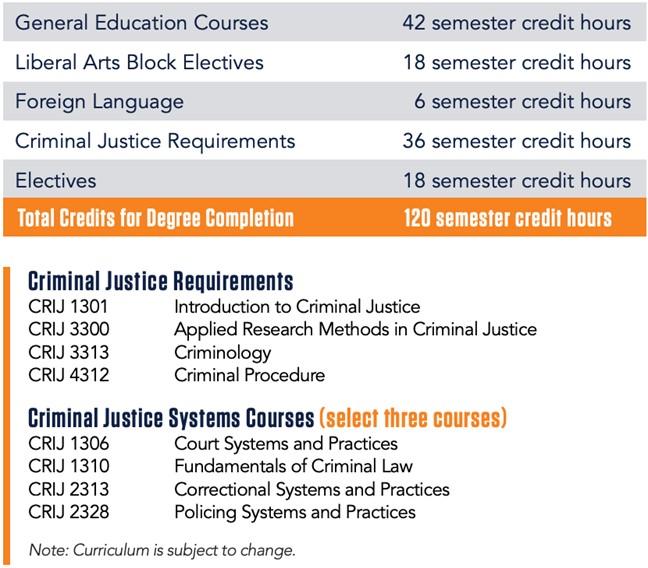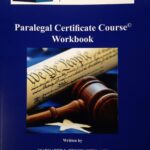Ever watched a crime show and thought, "Wow, I could totally do that"? Or perhaps you’ve seen a news report about a courtroom drama and felt a pang of curiosity about how it all really works behind the scenes? That was me, not too long ago. I was fascinated by the idea of justice, of righting wrongs, and the complex dance between law enforcement, courts, and corrections. So, I took the plunge and enrolled in a Criminal Justice Course.
And let me tell you, what I discovered was so much more profound, challenging, and utterly captivating than any TV drama could ever portray. If you’re on the fence, wondering what a "Criminal Justice Course" actually entails, or if it’s the right path for you, pull up a chair. I’m going to share my journey, the surprises, the tough questions, and why I believe it’s one of the most vital fields of study out there.
Beyond the Headlines: What Exactly Is a Criminal Justice Course?
Before I started, my understanding of criminal justice was pretty basic: police catch bad guys, lawyers argue, judges decide, and then people go to jail. Simple, right? Oh, how wrong I was! My first few weeks in the course quickly disabused me of that simplistic view.
A Criminal Justice Course, I learned, isn’t just about the "crime and punishment" aspect. It’s a vast, interconnected field that looks at the entire system designed to control crime, maintain order, and ensure fairness in society. Think of it as a grand ecosystem with many moving parts, and each part is crucial.
We weren’t just studying laws; we were dissecting the why behind crime (that’s criminology!), the how of enforcing laws (police studies), the what of legal proceedings (criminal law and procedure), and the after of incarceration and rehabilitation (corrections). It even delves into the victims of crime and the ethical dilemmas that plague the system every single day.
It’s truly an interdisciplinary adventure. You’ll find yourself touching on sociology, psychology, political science, history, and even philosophy. It’s about understanding human behavior, societal structures, governmental functions, and the moral compass guiding it all.
The Journey Begins: My First Steps & Core Subjects
Walking into that first lecture, I had a mix of excitement and nerves. My professor, a former police officer with years of experience, immediately set the tone: "This isn’t just about memorizing facts. It’s about thinking critically, questioning everything, and understanding the human element in every decision."
Here’s a glimpse into some of the core subjects that formed the backbone of my Criminal Justice Course, and what I found so fascinating about each:
-
Introduction to Criminal Justice: This was our foundational map. We explored the historical evolution of justice systems, from ancient codes to modern practices. It laid out the three main pillars: law enforcement, the courts, and corrections. I started seeing how these components, though distinct, rely heavily on each other. It made me realize just how young, in the grand scheme of things, our modern justice system truly is, and how much it has changed – and still needs to change.
-
Criminology: Understanding Why Crime Happens: This was a game-changer for me. It wasn’t just about what happened, but why someone committed a crime. We delved into theories of crime causation: sociological factors like poverty, inequality, and community disorganization; psychological aspects like mental health and personality disorders; and biological predispositions. It challenged my preconceived notions of "good" and "bad" people, forcing me to consider the complex web of circumstances that can lead an individual down a criminal path. This part of the course truly fosters empathy and a deeper understanding of society.
-
Criminal Law: The Rules of the Game: Suddenly, terms like "mens rea" (guilty mind) and "actus reus" (guilty act) weren’t just Latin gibberish. We learned about different types of crimes – felonies, misdemeanors, offenses against persons, property, and public order. We dissected legal definitions, explored the elements required to prove a crime, and discussed defenses like self-defense or insanity. It was like learning a whole new language, and understanding the precision required in legal drafting was eye-opening. You realize how a single word can change the entire meaning of a statute.
-
Criminal Procedure: From Arrest to Appeal: This course mapped out the entire process, step-by-step. From the moment a suspect is identified, through arrest, interrogation, grand jury proceedings, trial, sentencing, and appeals. We studied constitutional rights – the Fourth Amendment (search and seizure), Fifth Amendment (self-incrimination), Sixth Amendment (right to counsel, speedy trial), and Eighth Amendment (cruel and unusual punishment). This is where you truly appreciate the checks and balances designed to protect individual liberties, even for those accused of serious crimes. It highlighted the constant tension between public safety and individual rights.
-
Law Enforcement: The Front Lines: This module gave me a profound respect for police officers. We discussed their roles, responsibilities, challenges, and the immense pressures they face. We explored police ethics, use of force policies, community policing strategies, and the history of policing. It wasn’t just about car chases and arrests; it was about conflict resolution, de-escalation, and being a constant presence in the community, often dealing with society’s most vulnerable.
-
Corrections: Life After Conviction: What happens after someone is found guilty? This course examined the various forms of punishment and rehabilitation, from probation and parole to jails and prisons. We discussed the philosophies behind incarceration (retribution, deterrence, incapacitation, rehabilitation) and the challenges of managing correctional facilities. The statistics on recidivism (the rate at which convicted criminals re-offend) were sobering, pushing us to think about more effective ways to help individuals reintegrate into society.
-
Victimology: The Often-Unheard Voices: This was another incredibly impactful part of the course. It shifted the focus from the offender and the system to the victims of crime. We learned about the impact of crime on individuals and communities, victim rights, support services, and restorative justice practices. It underscored the human cost of crime and the importance of supporting those who have been harmed.
-
Ethics in Criminal Justice: Perhaps the most challenging, and most rewarding, subject. Every decision in the justice system, from a police officer’s split-second call to a judge’s sentencing, involves ethical considerations. We debated topics like racial profiling, plea bargaining, the death penalty, and the balance between security and privacy. There are no easy answers here, only tough questions that force you to examine your own values and principles.
Beyond the Textbooks: Skills You Gain
A Criminal Justice Course isn’t just a collection of facts; it’s a rigorous training ground for critical thinking and practical skills that extend far beyond the justice system itself. My time in the program honed abilities I use every single day:
- Critical Thinking & Analytical Skills: You learn to dissect information, identify biases, and evaluate arguments from multiple perspectives. You stop taking things at face value.
- Problem-Solving: The justice system is full of complex problems. You learn to break them down, identify root causes, and propose reasoned solutions.
- Communication Skills: Whether it’s writing detailed reports, presenting arguments, or engaging in sensitive interviews, clear and concise communication is paramount. My public speaking and writing improved dramatically.
- Research Skills: You become adept at finding, evaluating, and synthesizing information from legal texts, academic journals, and data.
- Empathy & Cultural Competence: By studying the diverse factors that contribute to crime and the varied experiences within the system, you develop a deeper understanding and appreciation for different perspectives and cultures.
- Ethical Reasoning: You develop a strong moral compass, learning to navigate difficult situations with integrity and fairness.
Who Should Consider This Course?
So, who is this academic adventure for? Honestly, anyone with a keen interest in society, fairness, and the way our world operates. But more specifically, a Criminal Justice Course is an excellent foundation for a wide array of career paths:
- Aspiring Law Enforcement Professionals: Police officers, detectives, federal agents (FBI, DEA, Secret Service), border patrol. You’ll understand the legal framework, human psychology, and ethical responsibilities.
- Future Legal Professionals: Lawyers (prosecutors, defense attorneys), paralegals, court administrators. You’ll gain a solid understanding of criminal law and procedure before even stepping into law school.
- Corrections Professionals: Probation officers, parole officers, correctional officers, rehabilitation specialists. You’ll learn about the complexities of managing offenders and promoting reintegration.
- Social Workers & Victim Advocates: Those passionate about supporting individuals affected by crime will find a crucial understanding of the system and its impact.
- Policy Analysts & Researchers: If you’re interested in shaping laws, evaluating programs, or conducting research to improve the justice system, this course provides the analytical tools.
- Journalists & Educators: For those wanting to report on or teach about crime, law, and justice, a strong foundation is essential.
- Anyone Curious About Society: Even if you don’t plan a direct career in justice, understanding this system helps you become a more informed citizen, capable of engaging in crucial public debates.
My Personal Takeaway & Why It Matters
Looking back, my criminal justice course was more than just a degree path; it was an awakening. It transformed my simplistic views into a nuanced understanding of a system that, while imperfect, strives for a vital goal: justice. I learned that the pursuit of justice is a messy, complex, and often frustrating endeavor, but it’s also profoundly human.
It’s about the intricate dance of laws, human behavior, and the often-flawed pursuit of fairness. It taught me the importance of asking tough questions, challenging assumptions, and advocating for those whose voices often go unheard. More than anything, it instilled in me a deep sense of responsibility to contribute, in some small way, to a more just and equitable world.
If you’ve ever felt a pull towards understanding the mechanisms of law, the psychology of crime, or the societal structures that shape our lives, I wholeheartedly encourage you to explore a Criminal Justice Course. It’s a challenging, often sobering, but profoundly rewarding field of study. You might just find your calling, and you’ll certainly gain a perspective that will change the way you see the world. Go ahead, take that first step. The world of justice is waiting to be unlocked.



